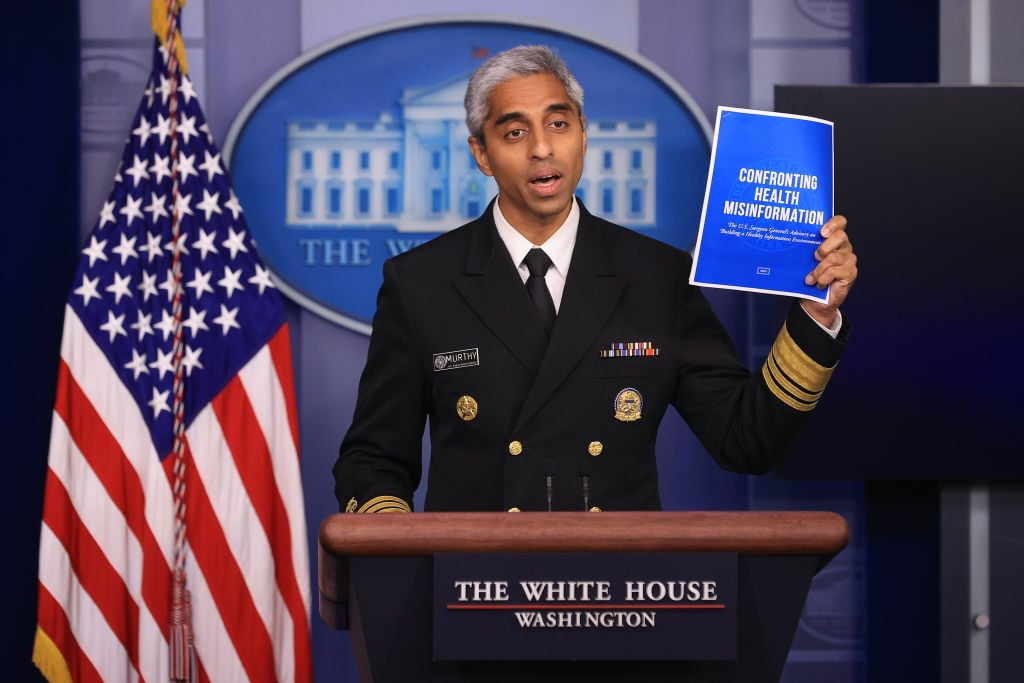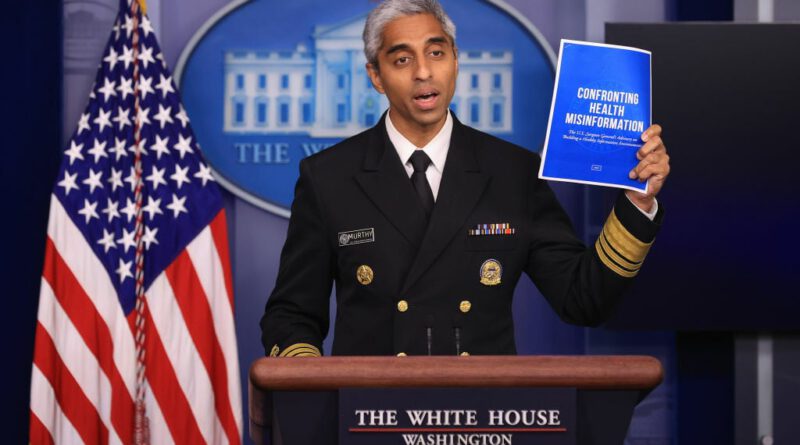U.S. officials have been banned from contacting Twitter, Facebook, and YouTube in free speech lawsuit

A federal judge has temporarily prohibited several U.S. government officials and agencies from contacting social media companies about content moderation, citing a potential breach of the First Amendment. It’s the latest development in the messy dichotomy between misinformation and free speech in the U.S.
The preliminary injunction was granted on Tuesday, in a case brought by the attorneys general of Louisiana and Missouri against a laundry list of officials and agencies in the Biden administration. In it, the defendants are accused of having “significantly encouraged” or “coerced” social media platforms such as Facebook, Twitter, and YouTube to suppress protected free speech.
The First Amendment does not prohibit privately owned companies from moderating content that is published on their platform. However, it does prevent the U.S. government from passing laws that restrict free speech. It can be further extrapolated that the government is also barred from coercing social media platforms to suppress such speech on its behalf, as it has been accused of doing.
The defendants allege they only made requests that these companies moderate their content, and did not exert undue pressure nor issue any threats to these companies. However, U.S. District Court Judge Terry A. Doughty considered it likely that the case will be decided against them, calling it “quite telling” that the posts in question concerned issues such as anti-vaccination and anti-masking sentiments — all conservative talking points.
“The Plaintiffs are likely to succeed on the merits in establishing that the Government has used its power to silence the opposition,” wrote Doughty in his 155-page memorandum ruling. “Opposition to COVID-19 vaccines; opposition to COVID-19 masking and lockdowns; opposition to the lab-leak theory of COVID-19; opposition to the validity of the 2020 election; opposition to President Biden’s policies; statements that the Hunter Biden laptop story was true; and opposition to policies of the government officials in power. All were suppressed. It is quite telling that each example or category of suppressed speech was conservative in nature. This targeted suppression of conservative ideas is a perfect example of viewpoint discrimination of political speech.”
There is substantial scientific evidence that COVID-19 vaccines are safe, and that masking and lockdowns slow the spread of the deadly virus which has killed over 1.1 million people in the U.S. to date. There is also evidence that anti-Asian hate crimes rose significantly due to scaremongering and speculation concerning the origin of the coronavirus, with the World Health Organisation calling on governments to “counter hate speech.” And despite much attention, investigation, and an attack on the U.S. Capitol incited by the allegation, there is absolutely no evidence that the 2020 U.S. presidential election was rigged.
However, such subjects have become the crux of many conservative political campaigns, making addressing the spread of actively harmful mis- and disinformation much more difficult. A New York University study further found that Facebook and Twitter algorithms actually amplify right-leaning content, a finding that was corroborated by Twitter’s own research.
In addition to various named officials such as U.S. Surgeon General Vivek Hallegere Murthy and White House Press Secretary Karine Jean-Pierre, agencies impacted by this injunction include the Department of Health & Human Services, National Institute of Allergy & Infectious Diseases, Centers for Disease Control & Prevention, U.S. Census Bureau, Federal Bureau of Investigation, U.S. Department of Justice, Cybersecurity & Infrastructure Security Agency, U.S. Department of Homeland Security, and U.S. Department of State.
The sweeping injunction does have some exceptions. The listed officials and agencies are still allowed to contact social media companies for a handful of matters, such as notifying them of posts concerning criminal activity, national security threats, or threats to public safety. They can also reach out about posts that intend to mislead regarding voting procedures, as well as about foreign election interference.
One could argue that encouraging thousands of people to reject proven health precautions is a threat to public safety. Even so, it’s likely the court won’t see it that way.
